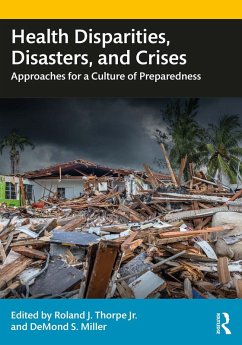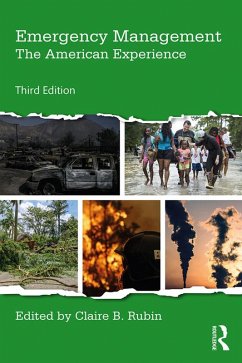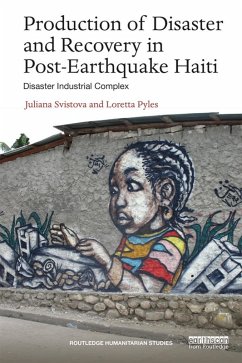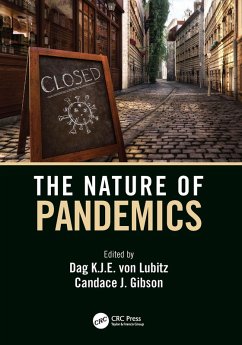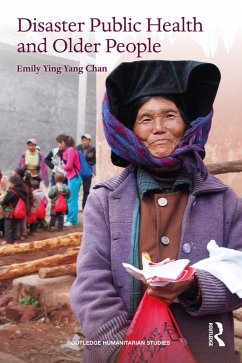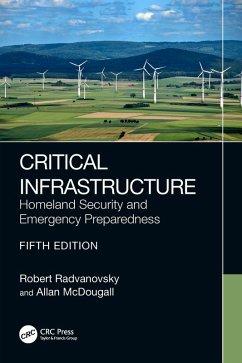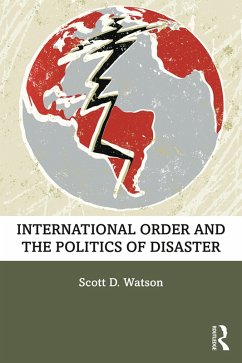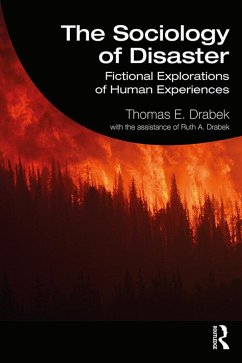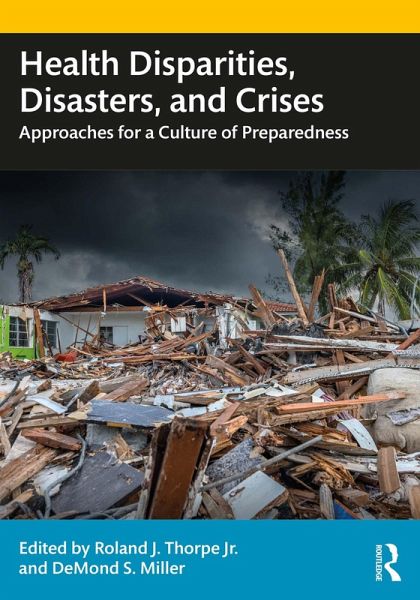
Health Disparities, Disasters, and Crises (eBook, ePUB)
Approaches for a Culture of Preparedness
Redaktion: Thorpe Jr., Roland J.; Miller, Demond S.
Versandkostenfrei!
Sofort per Download lieferbar
70,95 €
inkl. MwSt.
Weitere Ausgaben:

PAYBACK Punkte
35 °P sammeln!
Health Disparities, Disasters, and Crises: Approaches for a Culture of Preparedness presents a roadmap to help guide the actions needed to address health disparities introduced as part of the pre-planning, planning, and mitigation phases of natural and technological disasters.With contributions from 30 scholars in disaster management in public health, this text explores how the intersectionality of health disparities of different socioeconomic and racial/ethnic groups and how social determinants help shape exposure, and vulnerability to pandemic disasters and crises. Supported by examples from...
Health Disparities, Disasters, and Crises: Approaches for a Culture of Preparedness presents a roadmap to help guide the actions needed to address health disparities introduced as part of the pre-planning, planning, and mitigation phases of natural and technological disasters.
With contributions from 30 scholars in disaster management in public health, this text explores how the intersectionality of health disparities of different socioeconomic and racial/ethnic groups and how social determinants help shape exposure, and vulnerability to pandemic disasters and crises. Supported by examples from across the world, chapters are supplemented with case studies of best practices, graphs, and tables. Each of the seven parts address different topics, including how disasters affect the poor, medically underserved, and racial/ethnic groups, the impact of health disparities, and the growing link between global health, disaster planning/mitigation, and global security.
Written for the benefit of undergraduate and graduate students, working professionals, and academics in the US and abroad, Health Disparities, Disasters, and Crises: Approaches for a Culture of Preparedness provides the best overall understanding of professional disaster management and safety for all citizens. It is also an ideal text for graduate and undergraduate courses in public health, public policy, medicine and nursing, healthcare administration, emergency management, emergency preparedness, homeland security, epidemiology, sociology, and medical sociology.
With contributions from 30 scholars in disaster management in public health, this text explores how the intersectionality of health disparities of different socioeconomic and racial/ethnic groups and how social determinants help shape exposure, and vulnerability to pandemic disasters and crises. Supported by examples from across the world, chapters are supplemented with case studies of best practices, graphs, and tables. Each of the seven parts address different topics, including how disasters affect the poor, medically underserved, and racial/ethnic groups, the impact of health disparities, and the growing link between global health, disaster planning/mitigation, and global security.
Written for the benefit of undergraduate and graduate students, working professionals, and academics in the US and abroad, Health Disparities, Disasters, and Crises: Approaches for a Culture of Preparedness provides the best overall understanding of professional disaster management and safety for all citizens. It is also an ideal text for graduate and undergraduate courses in public health, public policy, medicine and nursing, healthcare administration, emergency management, emergency preparedness, homeland security, epidemiology, sociology, and medical sociology.
Dieser Download kann aus rechtlichen Gründen nur mit Rechnungsadresse in A, B, BG, CY, CZ, D, DK, EW, E, FIN, F, GR, HR, H, IRL, I, LT, L, LR, M, NL, PL, P, R, S, SLO, SK ausgeliefert werden.




